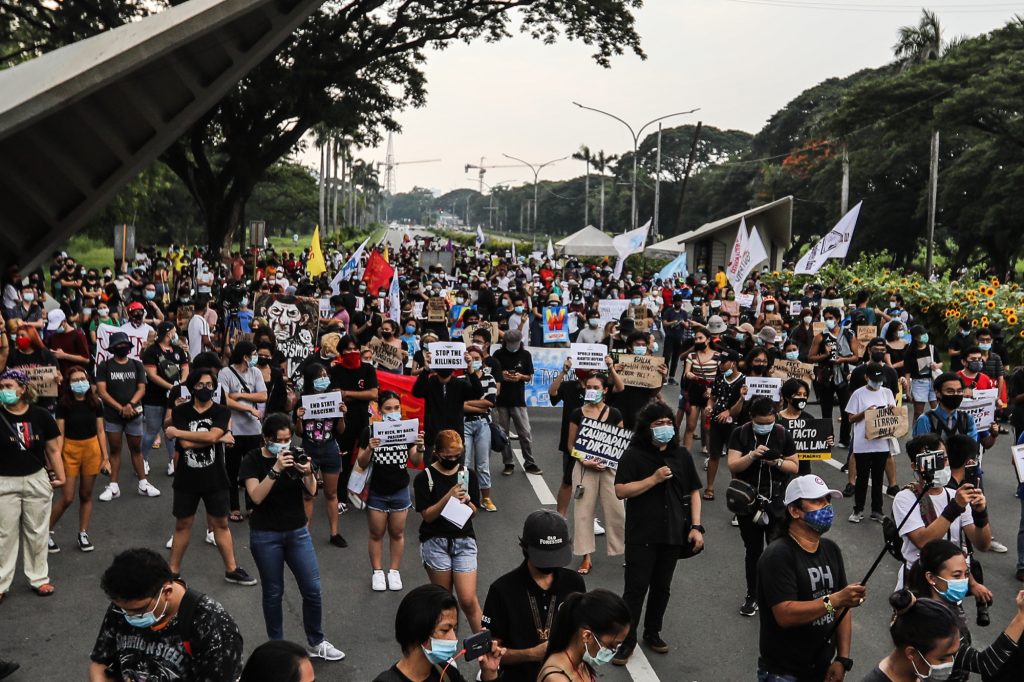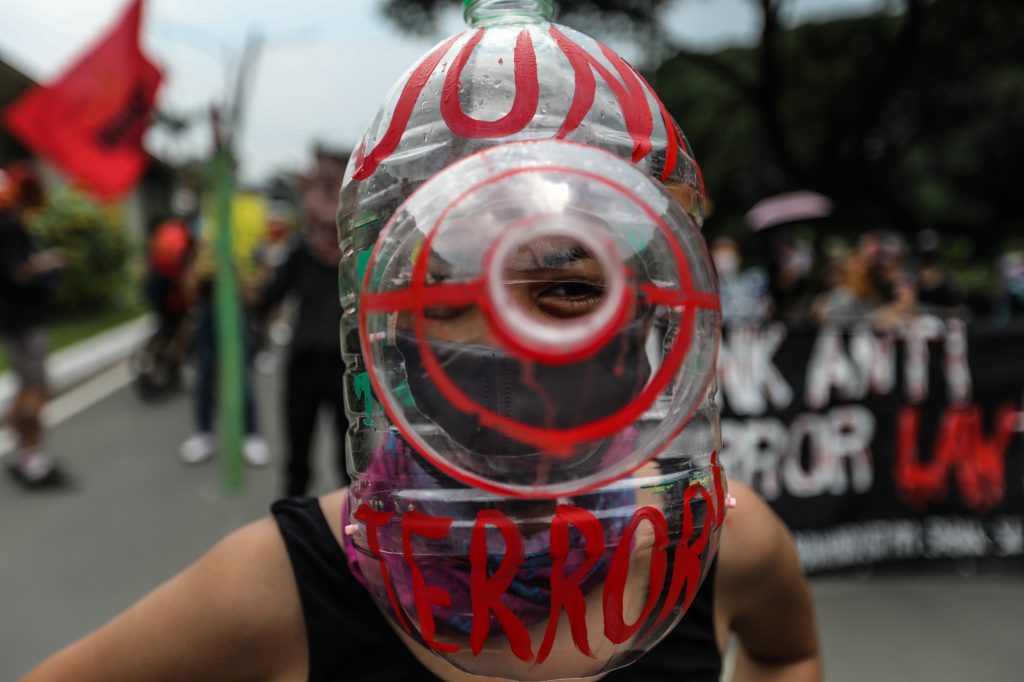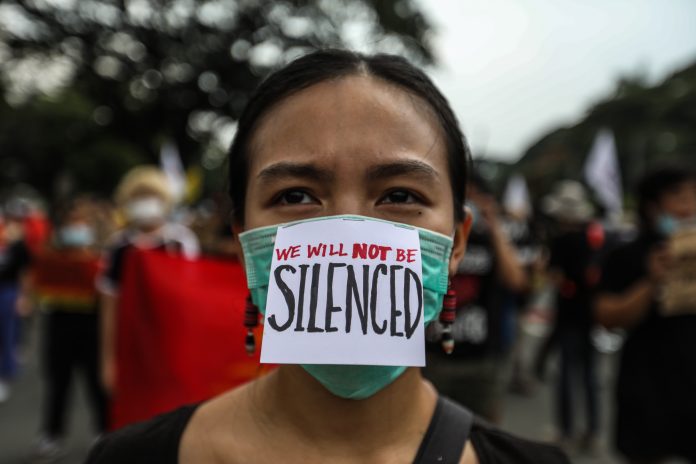A brutal, incompetent pandemic response, the passage of a draconian anti-terror law, and the closure of the Philippines’ largest broadcast network brewed a perfect storm around President Rodrigo Duterte.
The turbulence buffets one of the world’s social media capitals where generations engage in public face-offs.
On Twitter, the son of a legislator called his mother a fascist for voting for the anti-terror law and a cowardly fascist for sending a representative to vote for the closure of ABS-CBN broadcast network.
The daughter of a leader in the campaign to deny the network its franchise said he “must be held accountable for his actions” and expressed concern for the 11,000 workers facing the specter of unemployment.
On all social media platforms, “Millennials” born between 1981 and 1996 and the younger “Gen Z” hurl “boomer” slurs at Duterte and his lieutenants.
Trapped in their homes by the world’s longest COVID-19 lockdown, the youth pour out their frustrations on social media platforms, out-snarking and out-maneuvering the regime’s well-funded troll army.
The lockdown and the “new normal” showed the youth that nobody is safe. Duterte’s world is what the Filipino youth will inherit.
They face long years of cleaning up his mess: the bloodstains, the dispossession of families, and the economic gloom darkening the best years of their life.
Worse, these tech-savvy generations see the guns pointed at them. Information and expression are their lifeblood, their burden the vacuum that fueled the rise of Duterte.

Lies, killings
“How do I ask mother to stop spreading fake news?”
Thousands of students and young professionals have raised similar questions at seminars and conferences, and across social media platforms since Duterte assumed power in 2016.
They point to mothers or fathers, grandfathers or grandmothers, aunts or uncles, or older siblings as unknowing or complicit sharers of lies.
Young Filipinos see the spread of disinformation networks as a bane. It is a crisis in the Philippines, often described as a petri dish for the phenomenon.
“GenZ” and “Millennials” make up the bulk of the Philippine population. Their elders come from “Gen-X” (born between 1966 and 1981) and the vast “Boomer” span (1949 to 1965) — Filipinos who experienced the two-decade dictatorship of the late Ferdinand Marcos, and either fought to bring him down or supported his edifice of brutality and corruption.
Whatever the side they were on, the older generations were formed by long years of absence of press freedom, years where rights were trampled in the name of a new society, and the exercise of expression came with grave risks to life and livelihood.
Among youth who raised the dilemma of parents sharing disinformation, one thing was clear: education does not guarantee enlightenment. Life’s comforts can also weave a stronger, darker net against inconvenient truths.
As state forces killed thousands of poor drug suspects and attacked rights defenders, youth came up with new queries: How to respond when mother cheers publicly on Facebook for the murderers. How to reach father when he says the dead brought it on themselves.

Family feuds
There was always a subtext to these probes: How to do it without ripping apart the family, without burning bridges to beloved parents who were morphing into monsters.
Those with parents from poorer demographics — initially thought more vulnerable to Duterte’s blandishments — said experience made for a faster learning curve.
Children of the middle and upper classes face a lethal mix of challenges: parents clinging to economic perches, or expanding interests by currying favor with the regime, willing to sacrifice others for the protection of their families.
Their parents were just as befuddled and enraged.
Why was the child she had tutored and fed for years, the child he had carried on his shoulders, the child who listened wide-eyed to stories of heroes, questioning their ethics and morals? Why could the child not see that this was all for them, as pledged by the father of the nation?
Why didn’t they want to be saved? Why was this demure young woman, this scholar, this athlete, this artist — child of their loins who ate the fruits of their labors — siding with the enemy? What did they know of the hard decisions that leaders have to make to win a war against criminals and terrorists and their protectors?
When life is a stage
My generation that reached adulthood in the early 1980s faced similar challenges. But we and our parents argued in private, not in front of an audience of millions.
The healing was easier because painful conversations were not shared by thousands of strangers.
Children learn what they live but their choices will be unique, their own. They will look at parents and see examples — of what to do and what to avoid. There is no age of majority in learning principles and owning them and paying the price.
But there is also love beyond politics. Our parents learned that. We learned that. This, too, shall pass — not because we fall silent, but because we keep the doors open for each other.
Inday Espina-Varona is an award-winning journalist in the Philippines. She is a recipient of the “Prize for Independence” of the Reporters Without Borders in 2018. The views expressed in this article are the opinions of the author and do not necessarily reflect the editorial stance of LiCAS.news.









